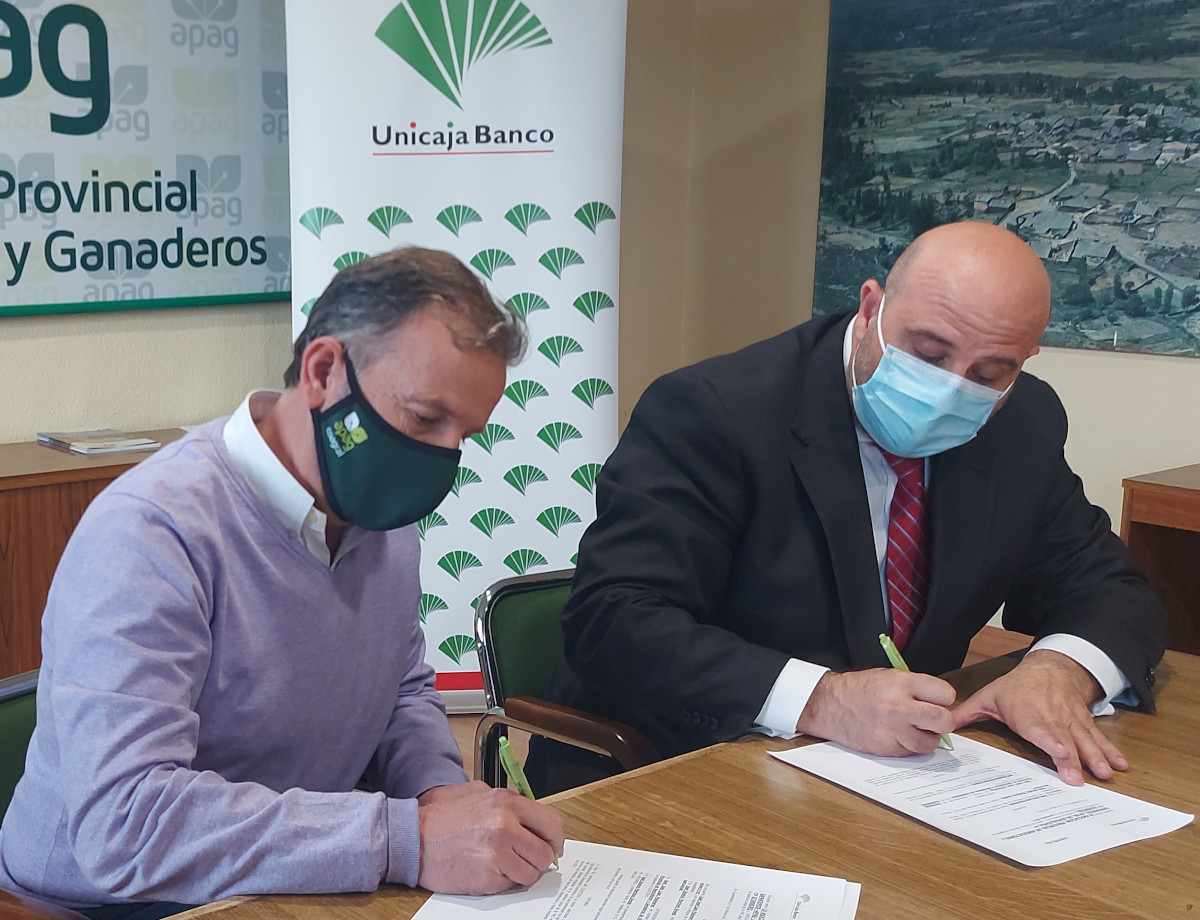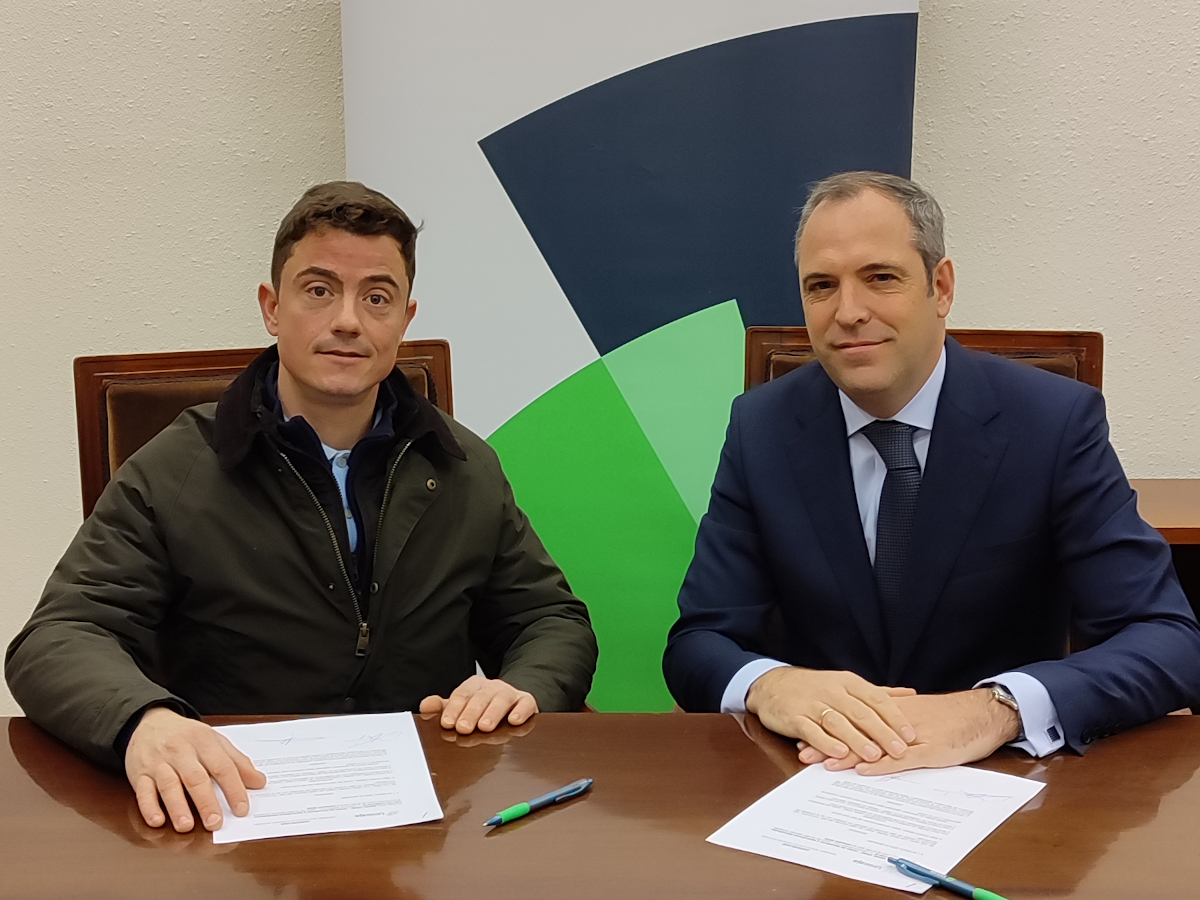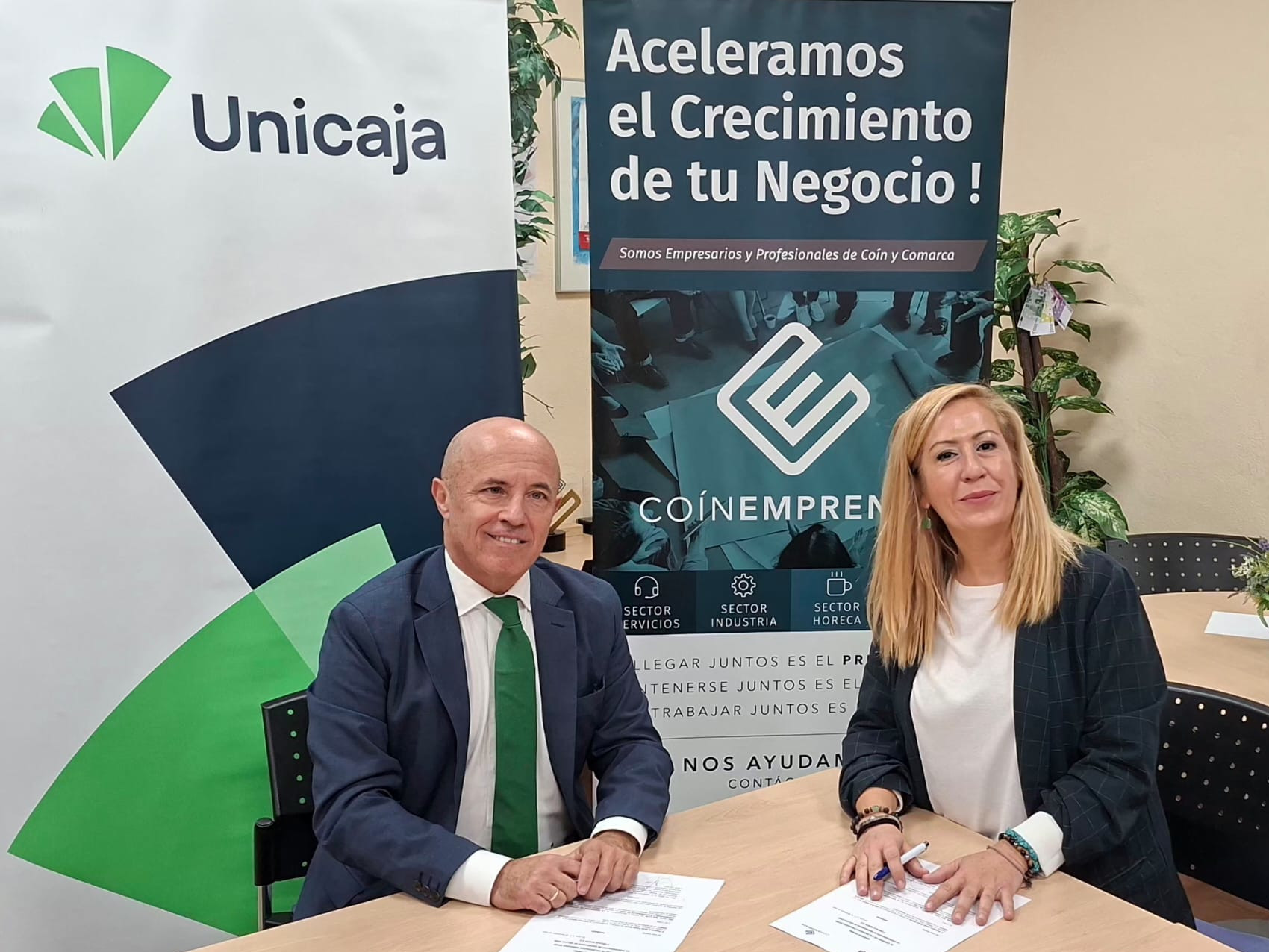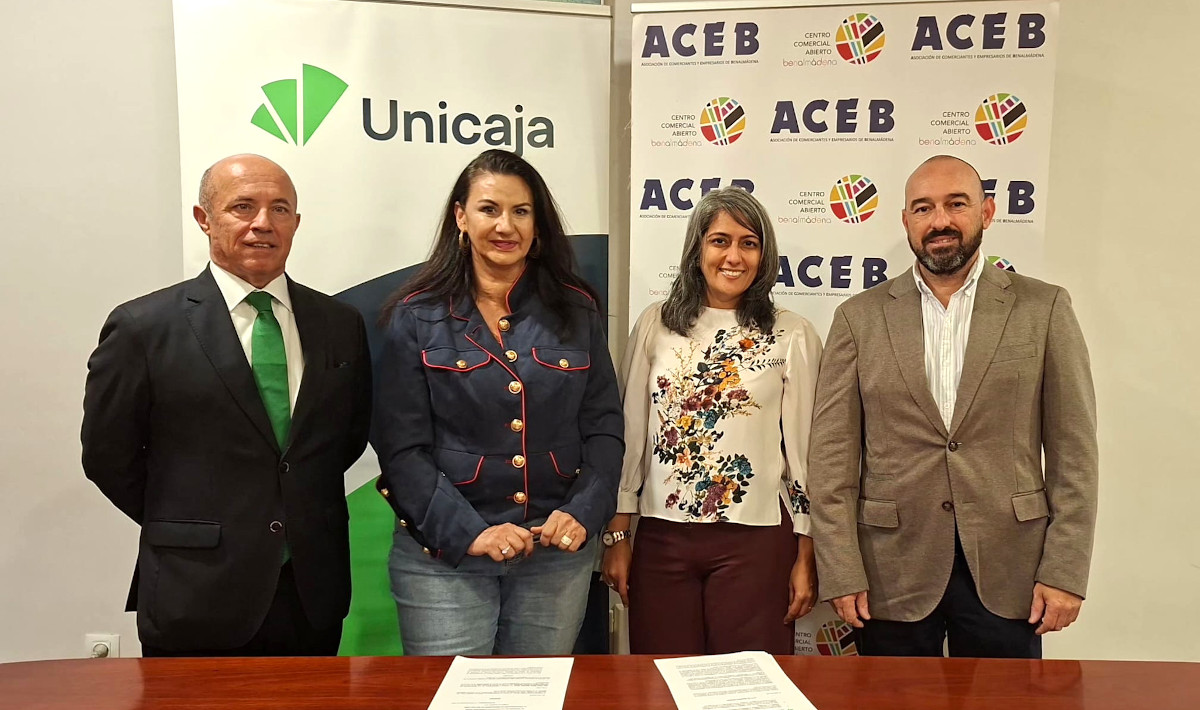Unicaja Banco and Asociación Provincial de Agricultores y Ganaderos (APAG, Provincial Association of Farmers and Livestock Breeders) Guadalajara have signed a new agreement under which they collaborate to facilitate the processing of applications to CAP (Common Agricultural Policy) subsidies to farmers and livestock breeders in the province
Under the agreement, the members of APAG will be able to use the organization’s specialized staff and resources and experience to process their application, while, at the same time, will have access to important financial advantages with Unicaja Banco, such as the advance payment of the aids.
The agreement has been signed by Unicaja Banco’s Division Manager of Commercial Banking in Castilla-La Mancha, José Ignacio Martínez, and by the Head of APAGA Guadalajara, Juan José Laso. The parties have remarked the benefits of this collaboration, as it allows farmers and livestock breeders in the province to process their dossier in an easier way and with maximum guarantees.
Both have remarked the importance of this collaboration, which provides first-hand information about the situation of the sector in the province, in order to adapt the financial resources to the real needs of professionals.
Specific products and services
Aware of the importance of the agricultural sector in Guadalajara, and in Castilla-La Mancha, and taking into account the current needs and demands of this group of professionals, Unicaja Banco puts at the disposal of farmers a comprehensive range of specialized products and services under special conditions.
In addition to the advance payment of CAP subsidies, farmers will find the funding they need to launch new business projects, invest in improvements or in the acquisition of new agricultural machinery, launch new crops or expand markets.
In short, Unicaja Banco works to develop new products and services adapted to the needs of the sector which, especially in recent years, is facing changes in the market and regulation of subsidies, as well as an ongoing adaptation to new more sustainable models.



